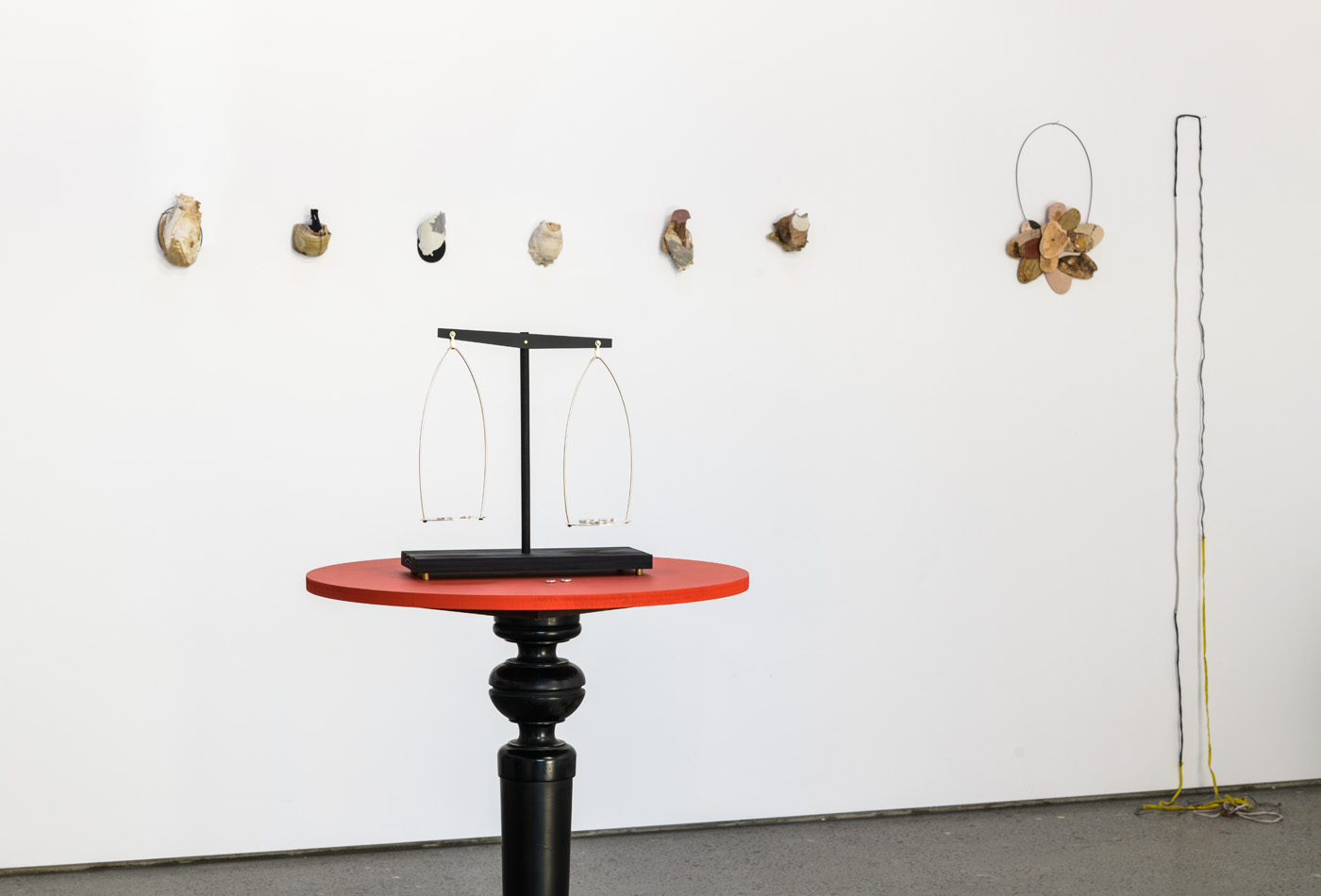

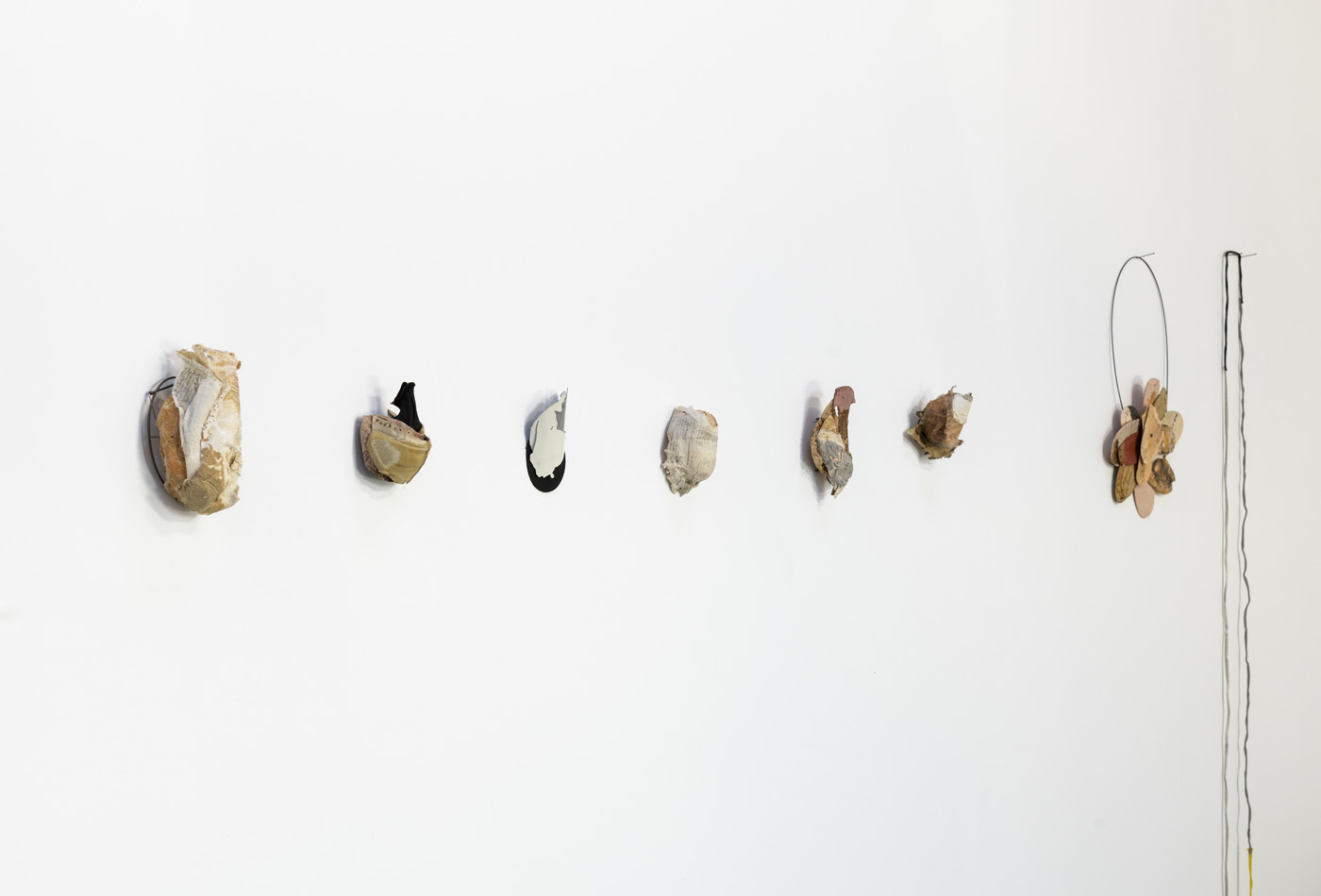
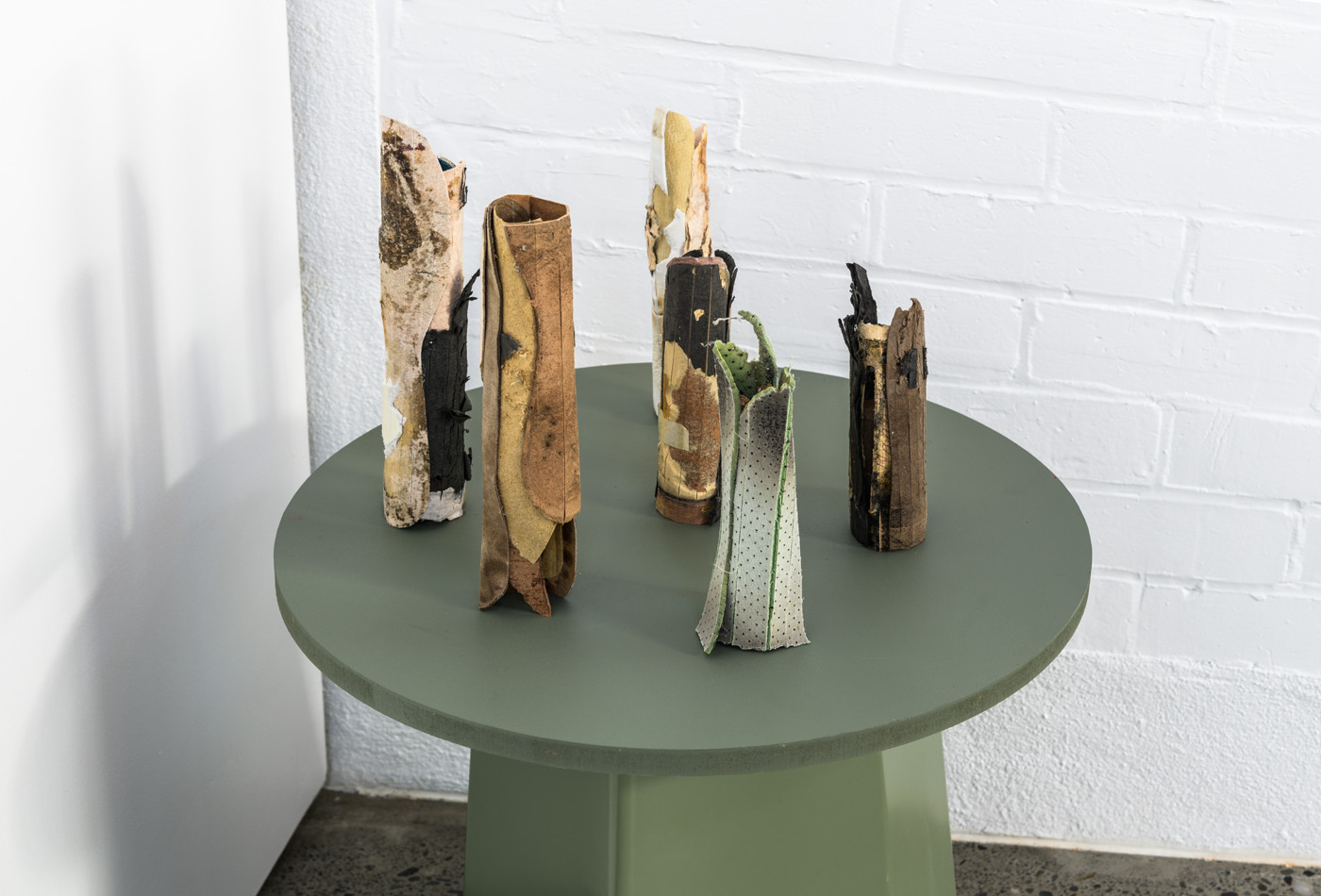
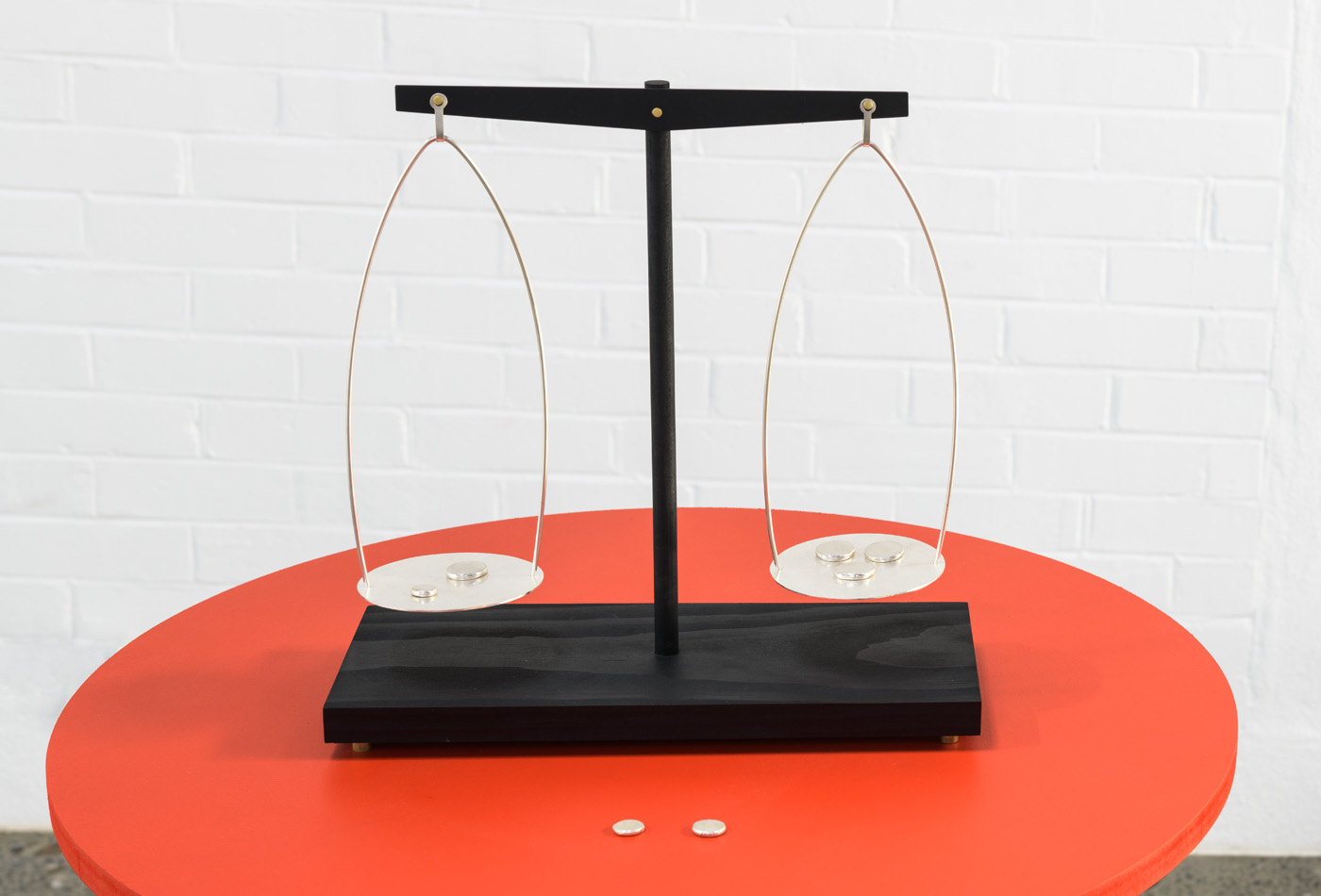
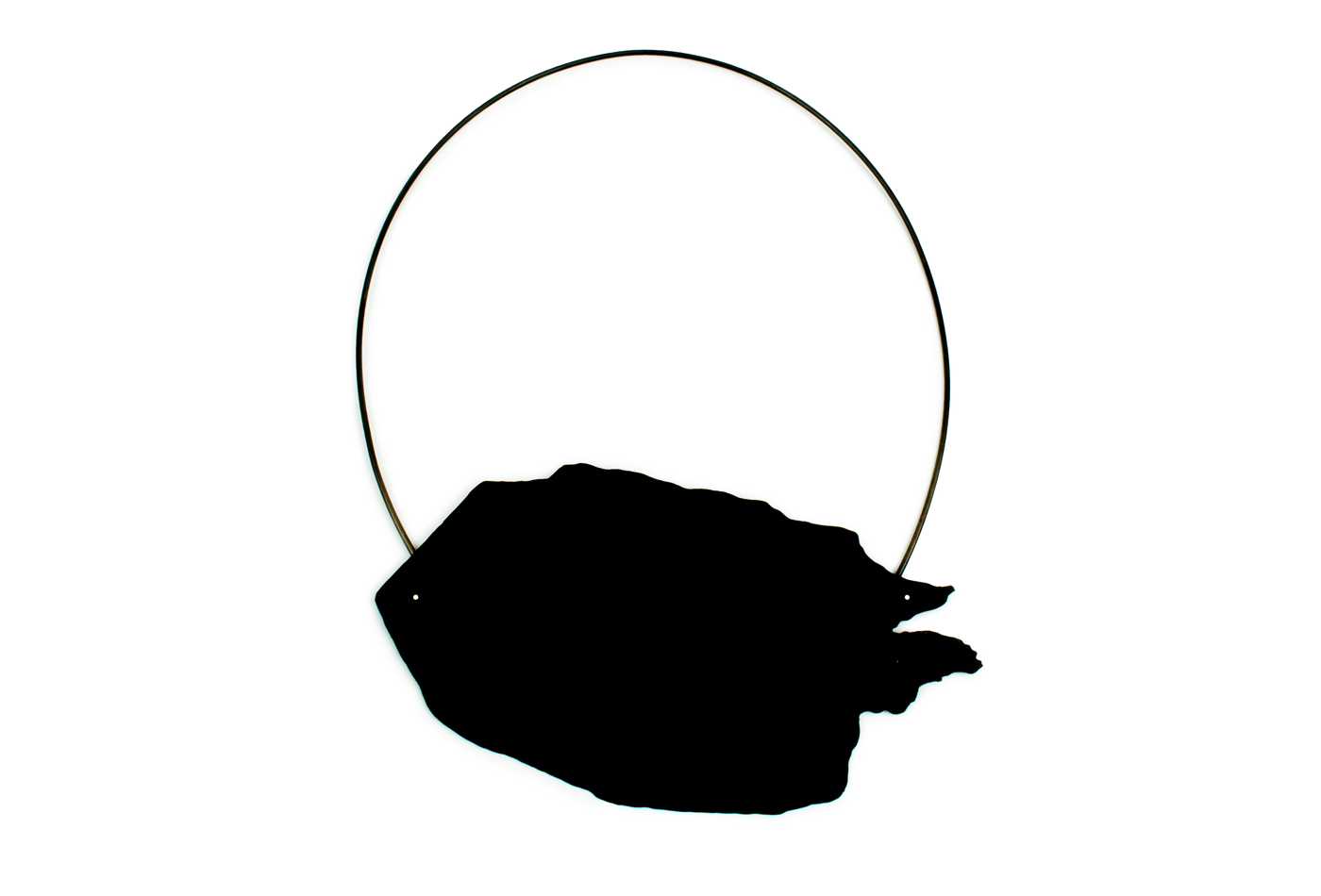
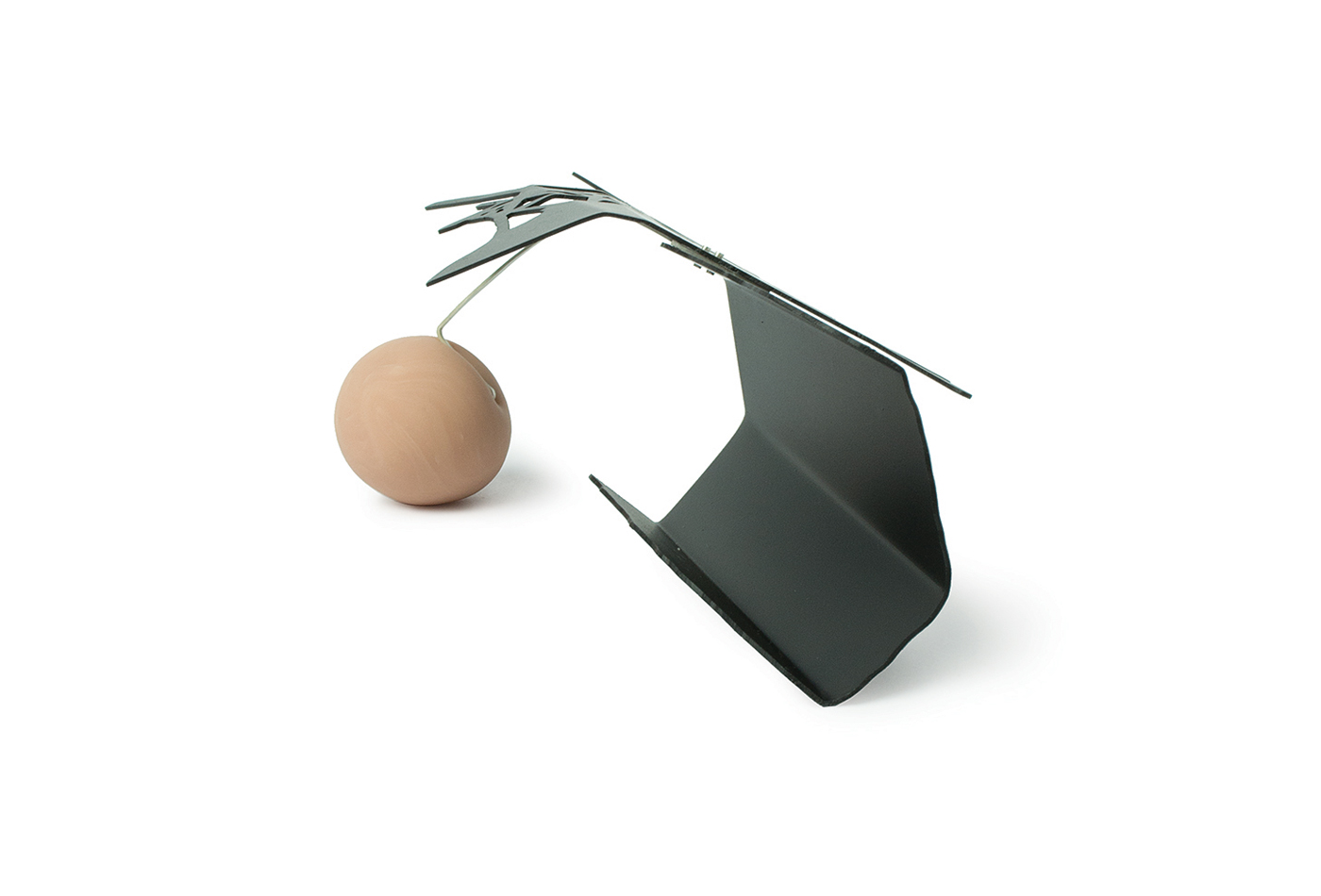
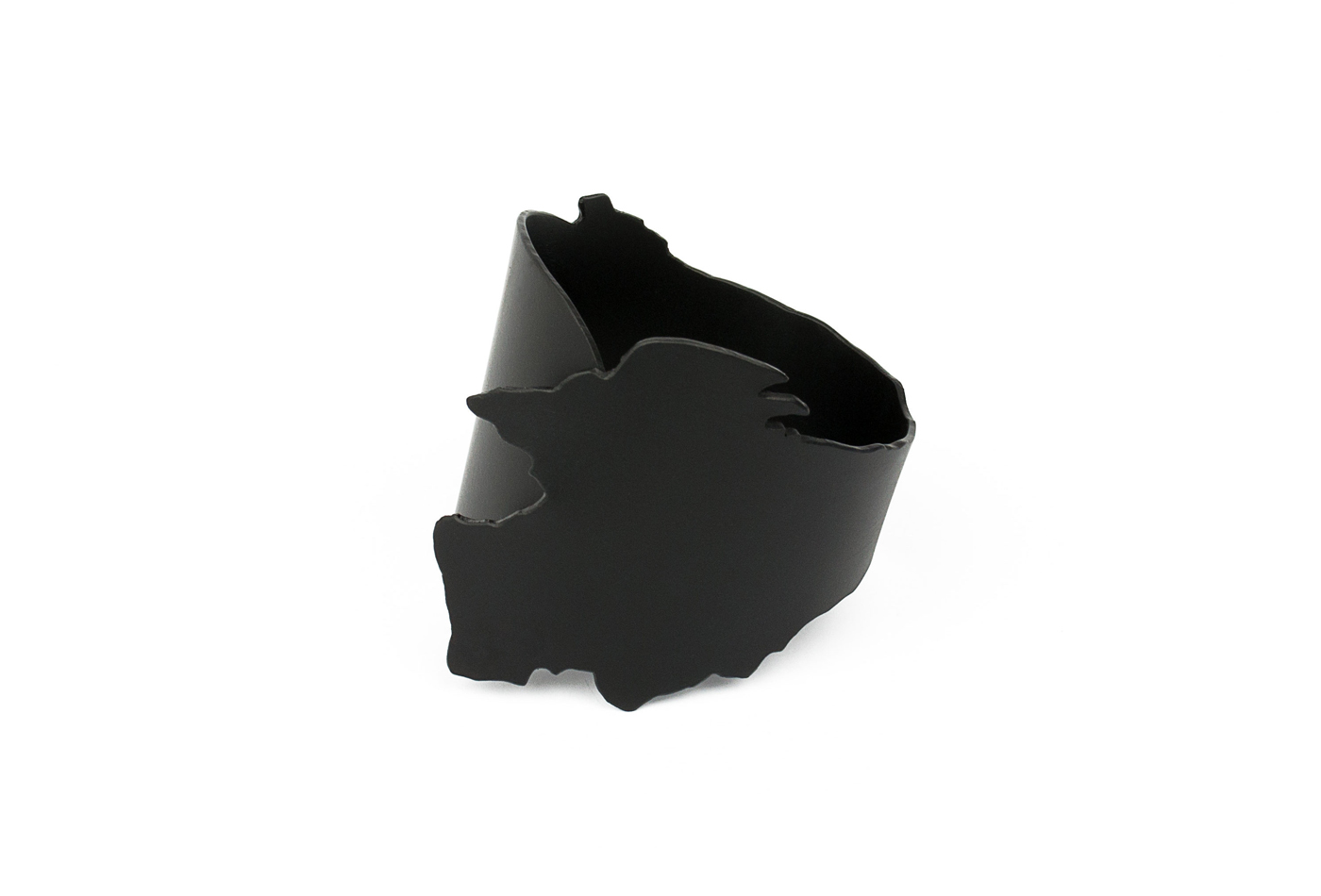
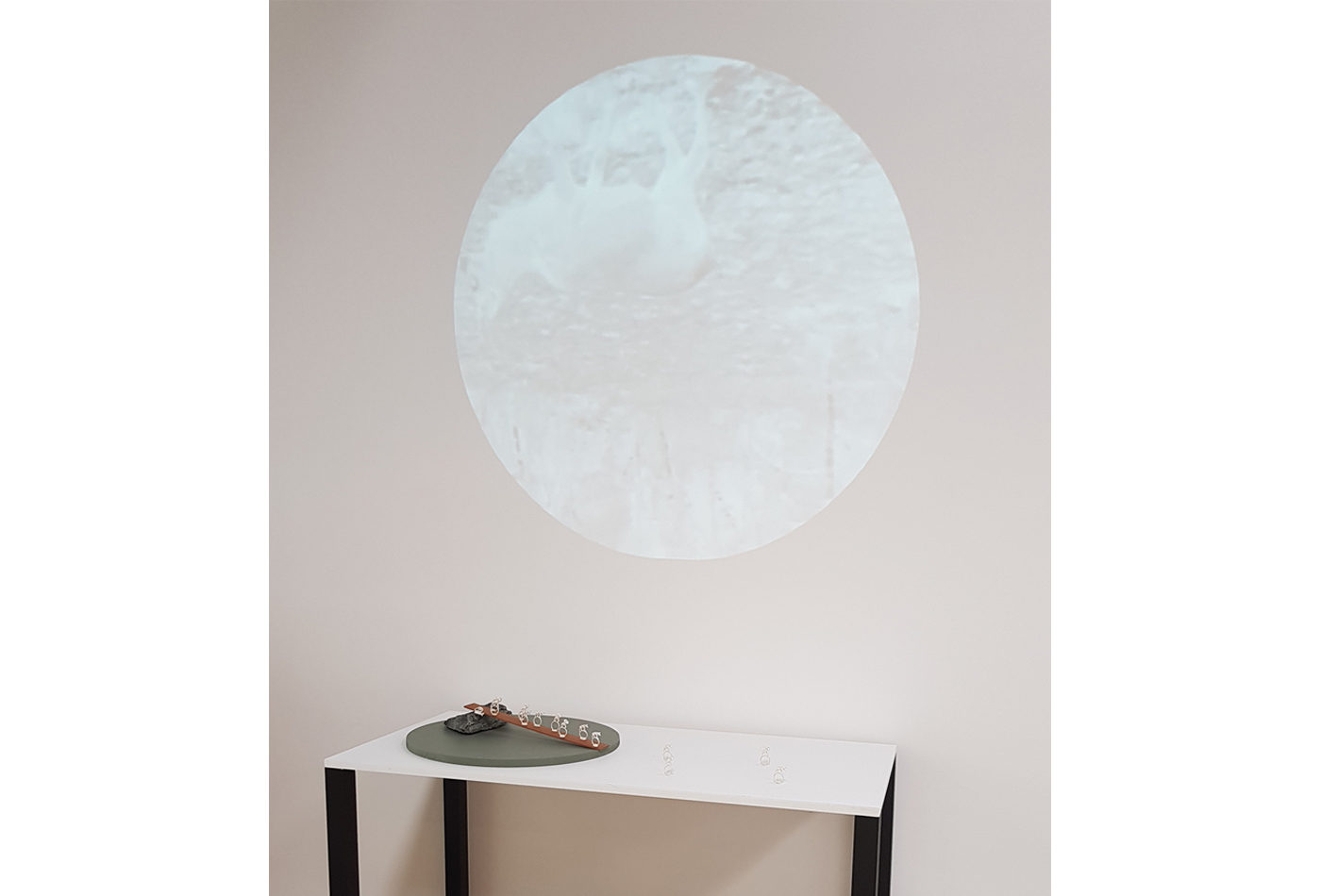
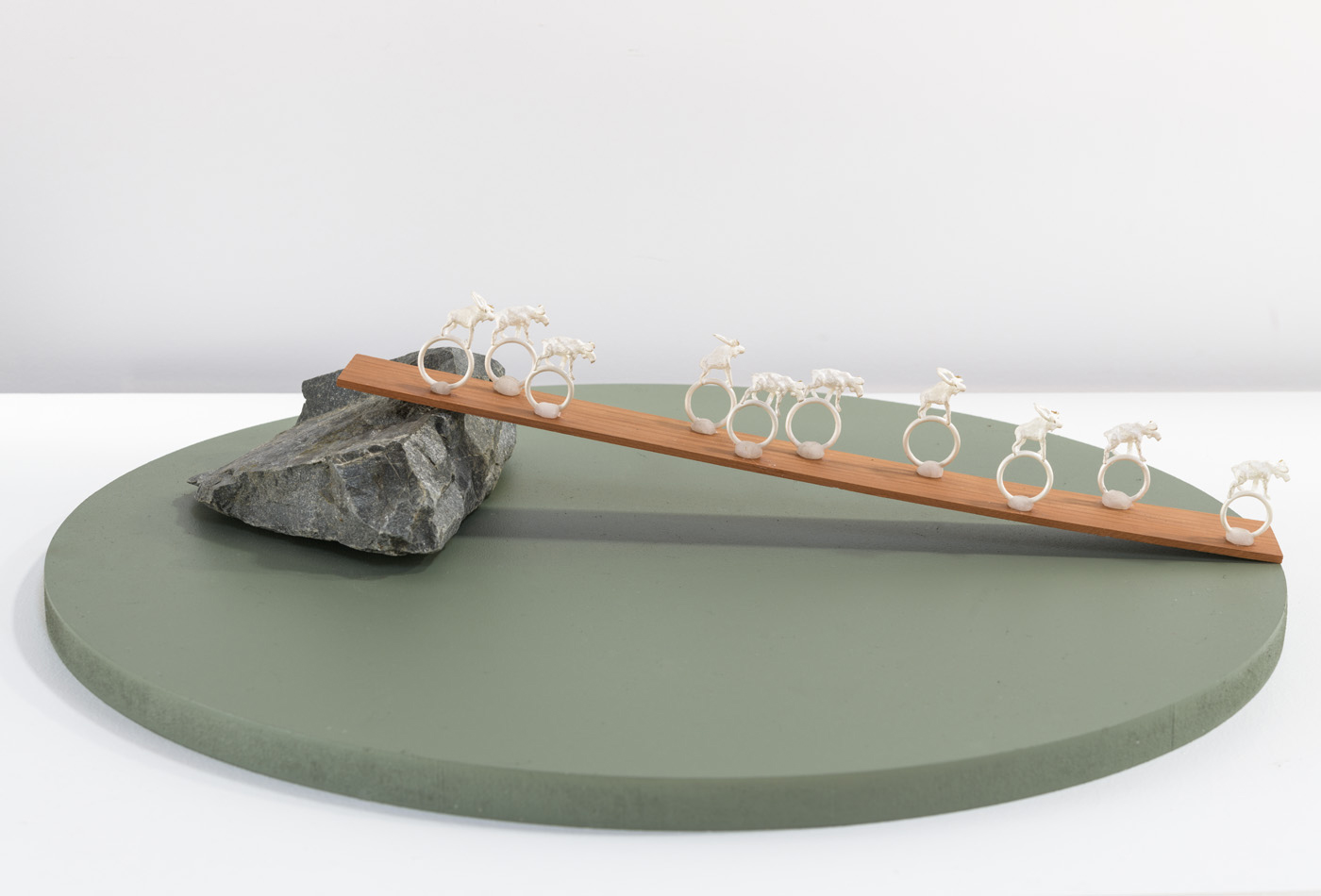

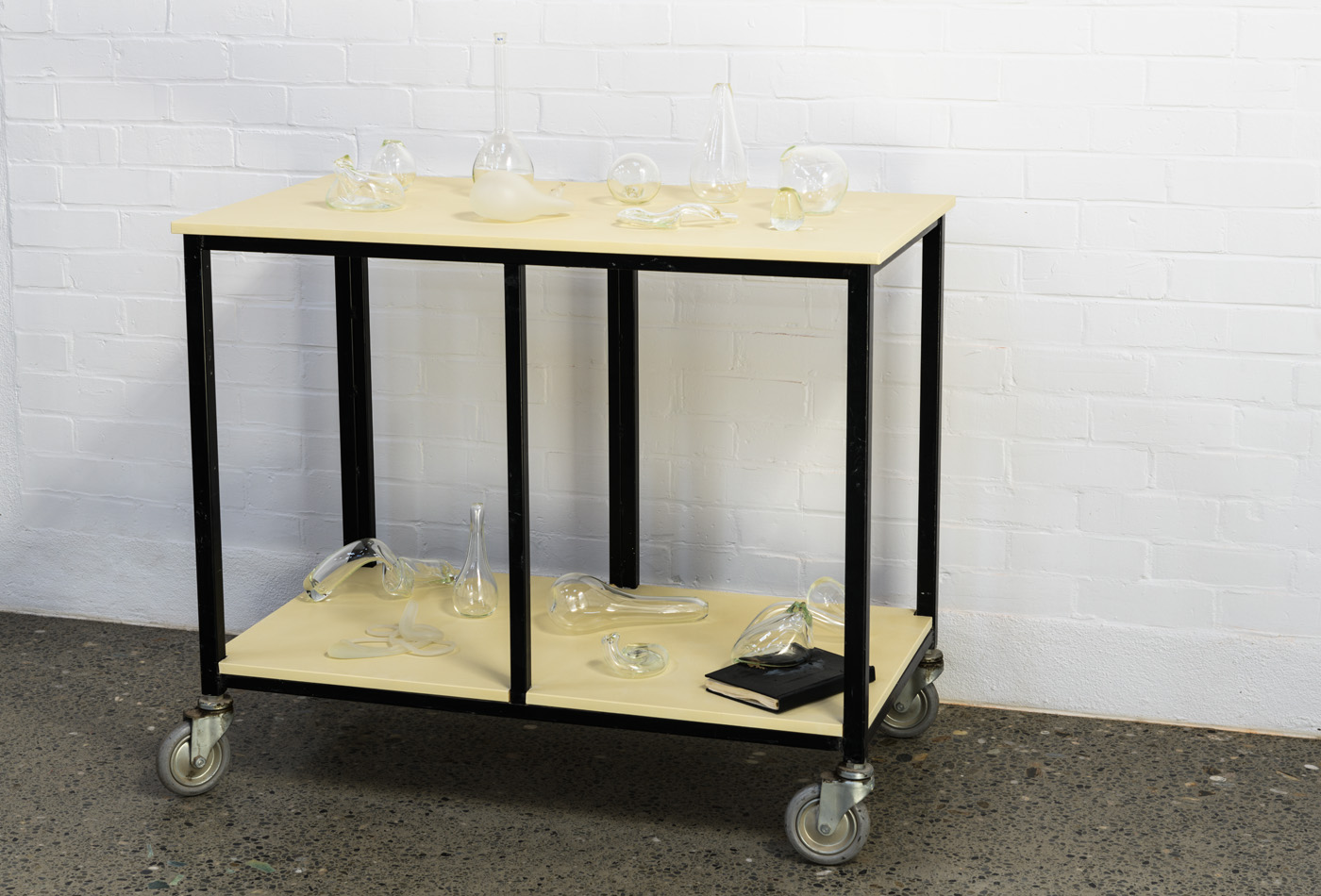
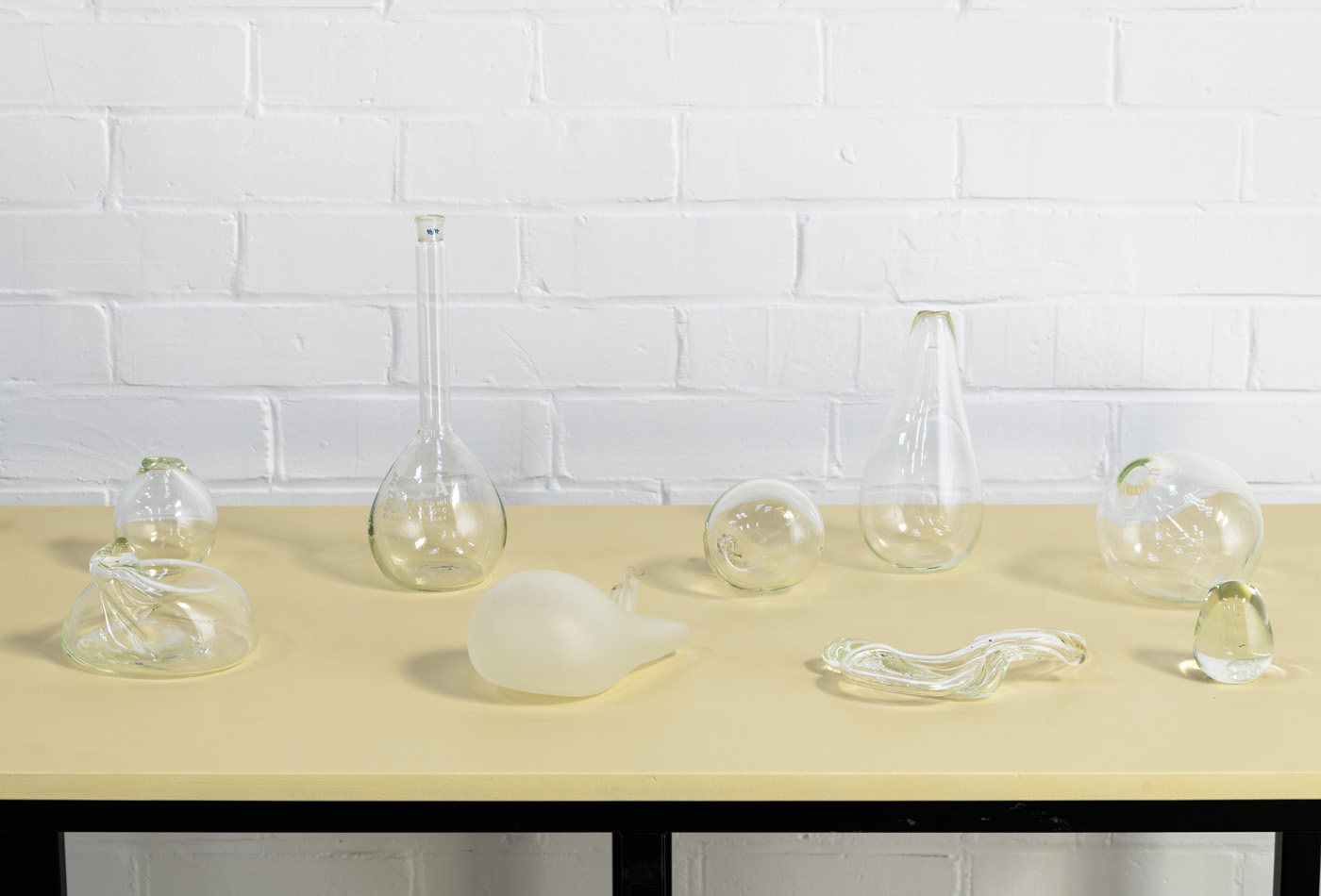
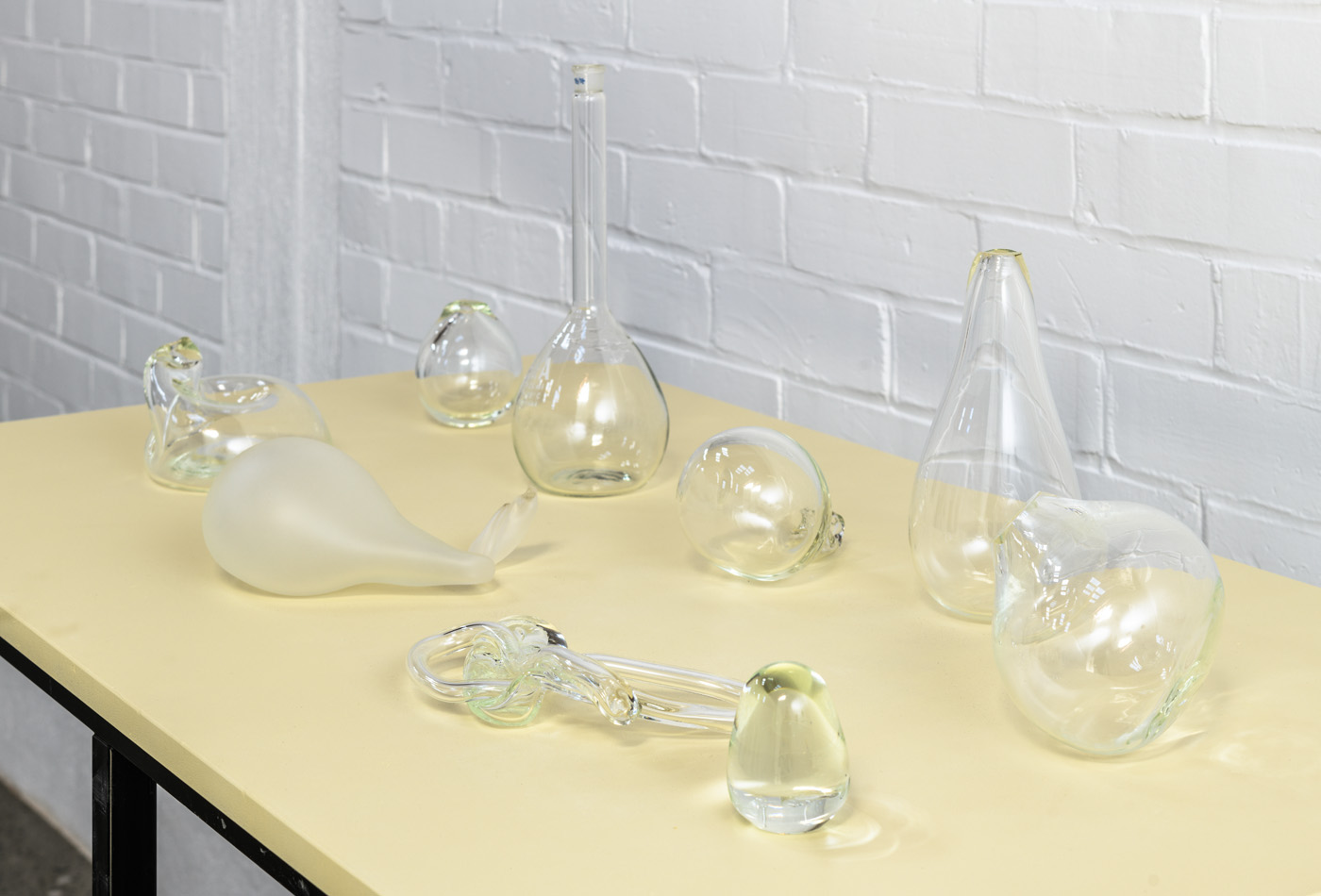
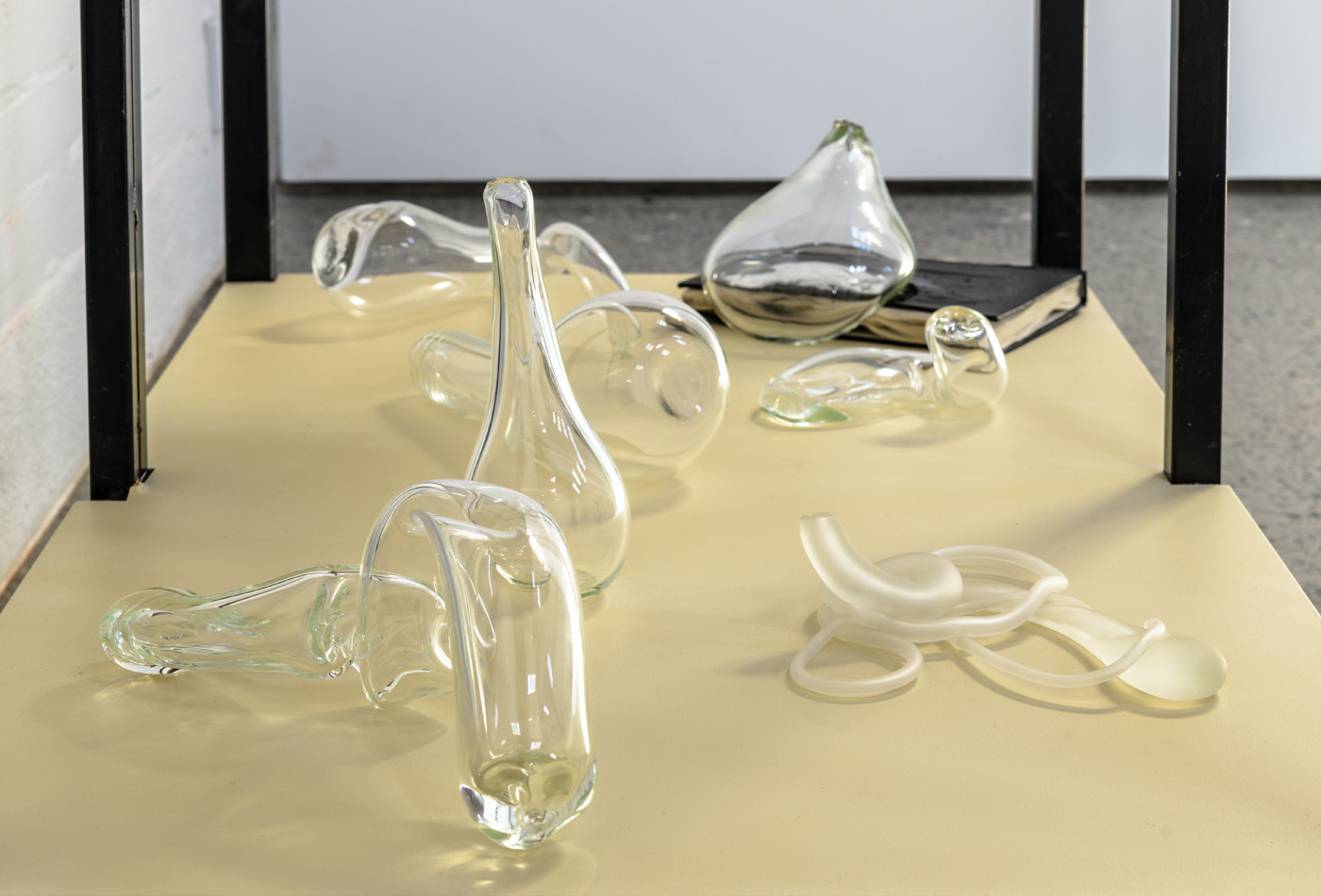
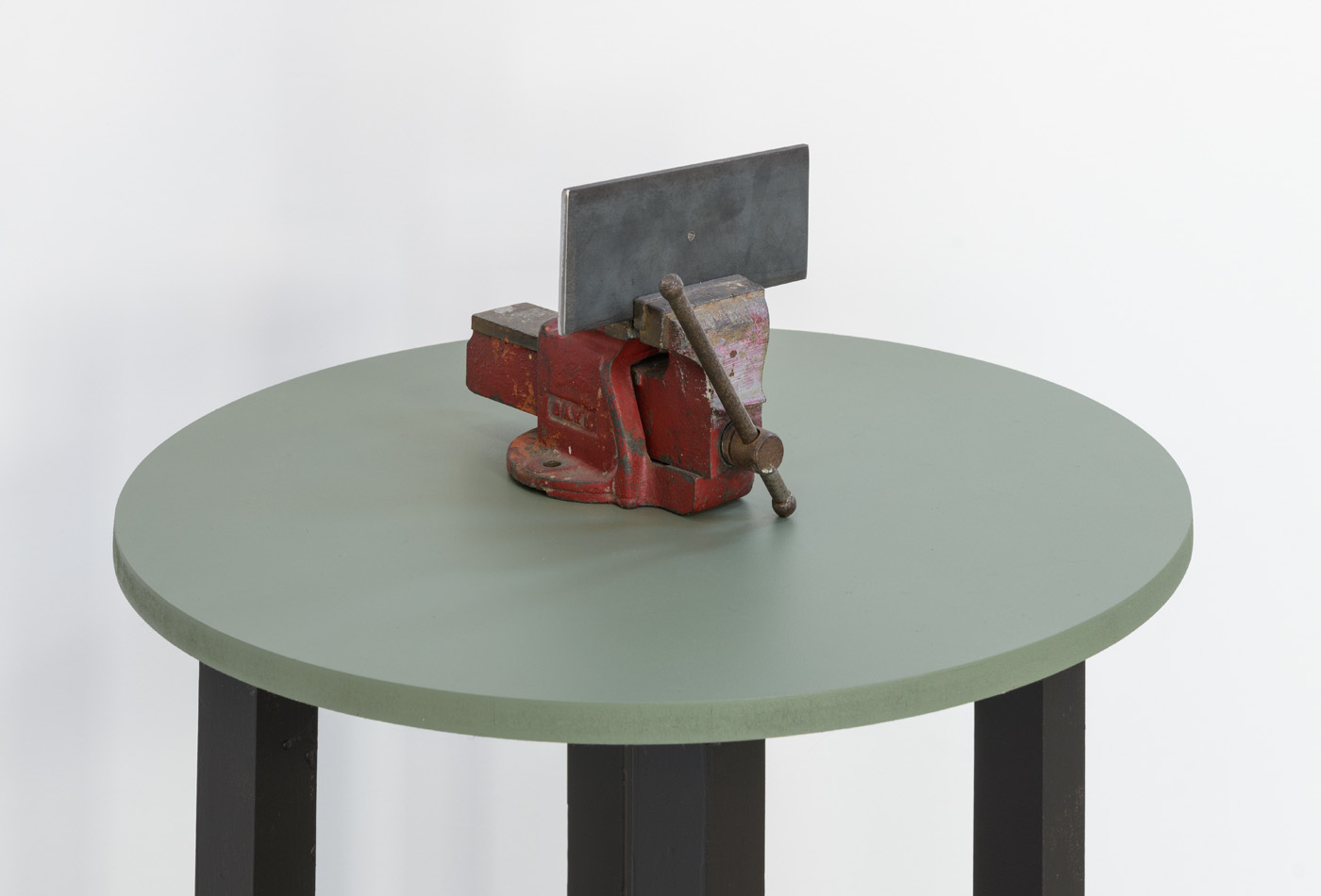
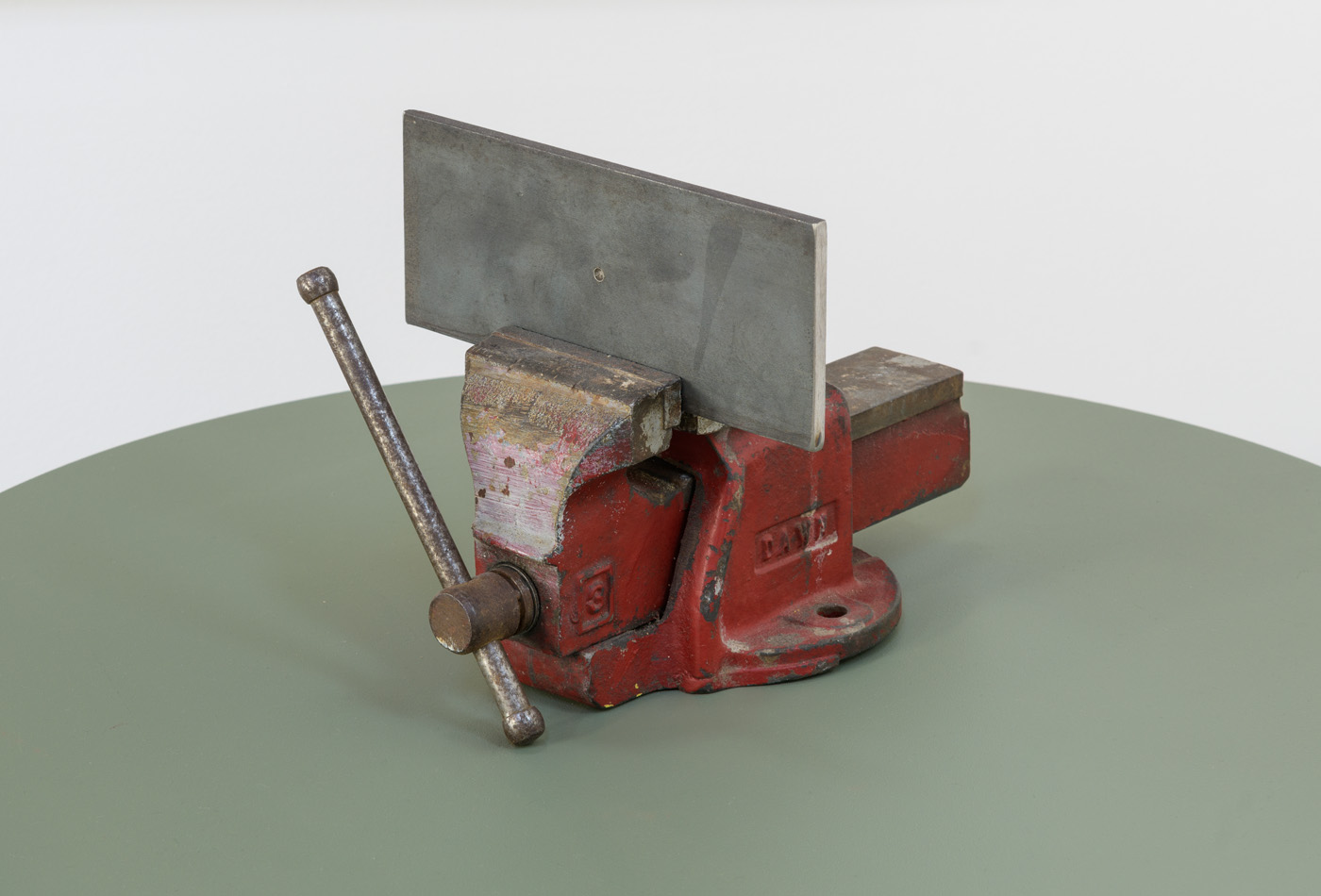
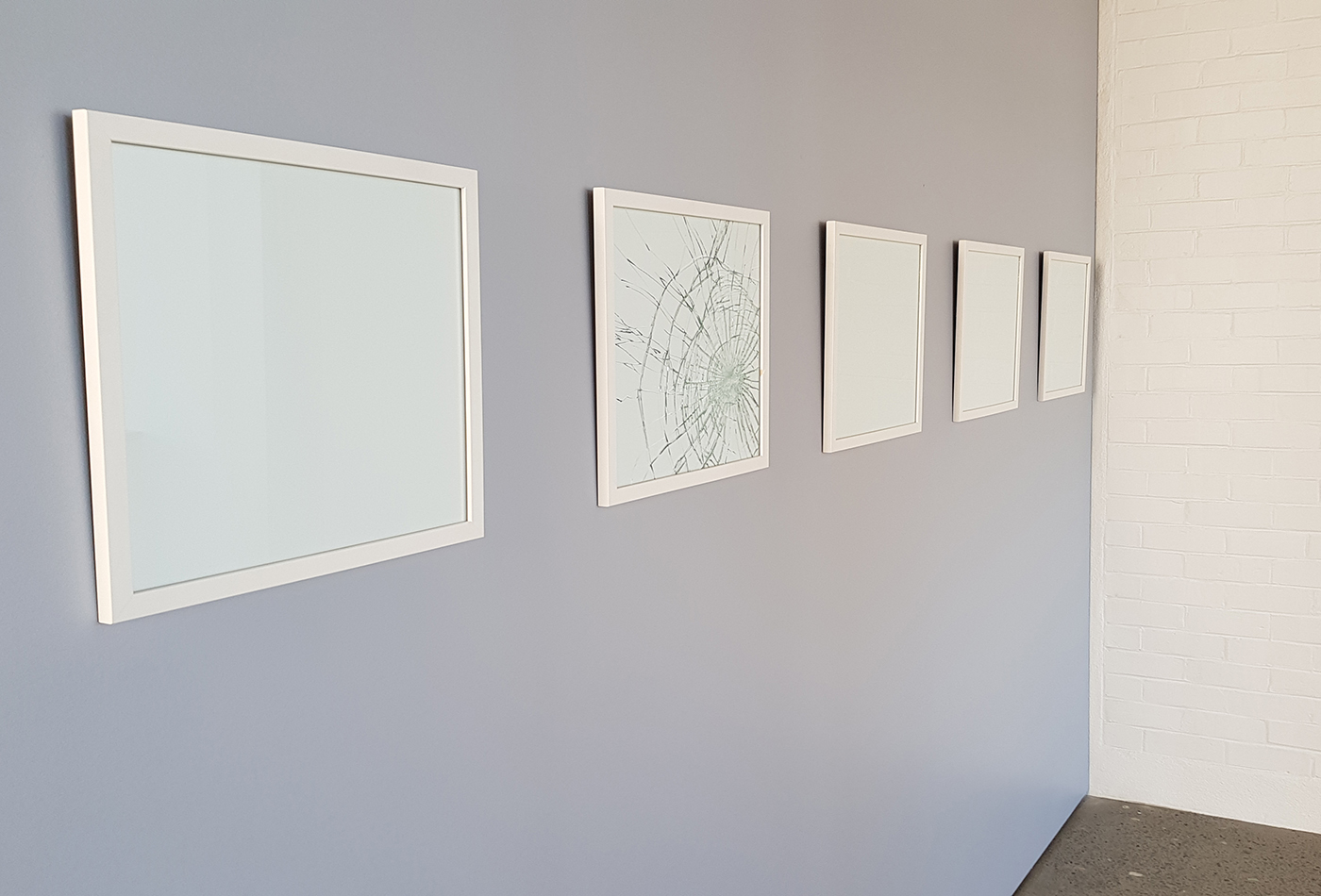
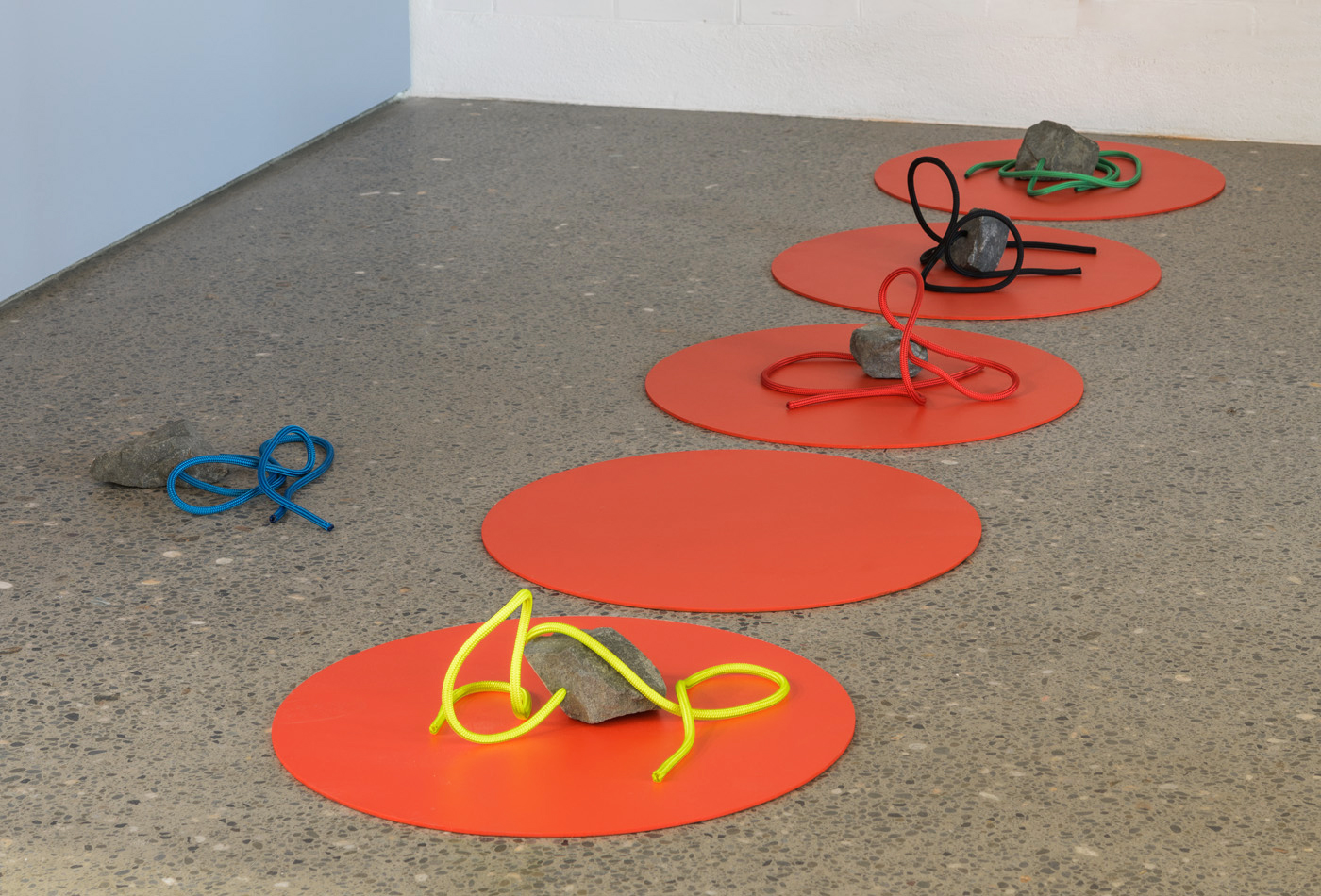


1 / 18
Amelia Pascoe
On the hanging on and the letting go
Installation view
$POA | ENQUIRE
2 / 18
Amelia Pascoe
On the hanging on and the letting go
Tread Softly
Brooches, 2014
deconstructed shoes
$550-690 | ENQUIRE
3 / 18
Amelia Pascoe
On the hanging on and the letting go
Tread Softly
Objects, 2014
deconstructed shoes
$220 | ENQUIRE
4 / 18
Amelia Pascoe
On the hanging on and the letting go
The alchemist
Scales, 2017
pine, sterling silver, paint and brass
$3000 | ENQUIRE
5 / 18
Amelia Pascoe
On the hanging on and the letting go
On the origin of species
Neckpiece, 2016
aluminium, paint
$650 | ENQUIRE
6 / 18
Amelia Pascoe
On the hanging on and the letting go
On the origin of species
Mouth piece, 2016
aluminium, paint, polymer clay
$850 | ENQUIRE
7 / 18
Amelia Pascoe
On the hanging on and the letting go
On the origin of species
Cuff, 2016
aluminium, paint, sterling silver
$550 | ENQUIRE
8 / 18
Amelia Pascoe
On the hanging on and the letting go
On the hanging on
2018
Installation view
$POA | ENQUIRE
9 / 18
Amelia Pascoe
On the hanging on and the letting go
On the hanging on
Rings, limited edition of 14, 2018
sterling silver, fine silver, 18ct gold
$450 | ENQUIRE
10 / 18
Amelia Pascoe
On the hanging on and the letting go
On the hanging on
Rings, limited edition of 14, 2018
sterling silver, fine silver, 18ct gold
$450 | ENQUIRE
11 / 18
Amelia Pascoe
On the hanging on and the letting go
Optics
Objects, 2017
scientific glass
$350-1200 | ENQUIRE
12 / 18
Amelia Pascoe
On the hanging on and the letting go
Optics
Objects, 2017
scientific glass
$350-1200 | ENQUIRE
13 / 18
Amelia Pascoe
On the hanging on and the letting go
Optics
Objects, 2017
scientific glass
$350-1200 | ENQUIRE
14 / 18
Amelia Pascoe
On the hanging on and the letting go
Optics
Objects, 2017
scientific glass
$350-1200 | ENQUIRE
15 / 18
Amelia Pascoe
On the hanging on and the letting go
The hunch
Object, 2018
vice, stainless steel
$350 | ENQUIRE
16 / 18
Amelia Pascoe
On the hanging on and the letting go
The hunch
Object, 2018
vice, stainless steel
$350 | ENQUIRE
17 / 18
Amelia Pascoe
On the hanging on and the letting go
The letting go
2018
Framed glass, rock on cord
$380-450 | ENQUIRE
18 / 18
Amelia Pascoe
On the hanging on and the letting go
The letting go
2018
Framed glass, rock on cord
$380-450 | ENQUIRE
On the hanging on and the letting go
Amelia Pascoe
07 Mar – 06 Apr 2018
An exhibition publication is available from the gallery, with essay by Sian van Dyk. View a PDF of the Catalogue here.
Amelia Pascoe trained in the sciences and has a long work history in science-based organisations. Amelia Pascoe formally embarked on her artistic career in 2010. She graduated from Whitreia New Zealand in 2012 with a Bachelor of Visual Arts and Design majoring in contemporary jewellery. Since graduatng, Amelia has had a number of solo shows and has partcipated in groupshows in New Zealand and overseas. Her work is held in public and private collectons. In 2013, Amelia undertook a six-week residency in Italy, with internatonally renowned contemporary jeweller, Fabrizio Trident. Ruudt Peters, a pioneering Dutch jeweller, was her conspirator through Handshake— a professional development and exhibiton programme for selected emerging New Zealand jewellers. In 2018, Amelia will embark on a Fine Arts (Honours) year at Canterbury University.
“In his paper The Reservoir, Terrence Rosenberg explores different features of scientific (Apollonian) and poetic (Dionysian) research methods and the critical role that together they can play in creative practice. The Apollonian method is characterised by linear, logical progression of ideas aimed at testing a predefined proposition grounded in existing knowledge. The Dionysian method favours divergence, the subjective, and the inferred. Rosenberg uses analogies of working on solid substrate and centripetal forces (movement towards the centre) to explain Apollonian processes. Analogies of open water (being immersed in and at the mercy of the environment) and centrifugal forces (the pulling away and release into the unknown) are used for the Dionysian. He also makes much of the role of the intuitive hunch – a slim, singular, instantaneous spark that ignites whole new worlds of possiblity – for both.
Without having had a name for them, I have been acutely aware of these left brain-right brain tensions in my own practice, and over the years have been actively seeking ways to balance my naturally Apollonian tendencies.
These works are the results of some of my explorations”.
Amelia Pascoe
